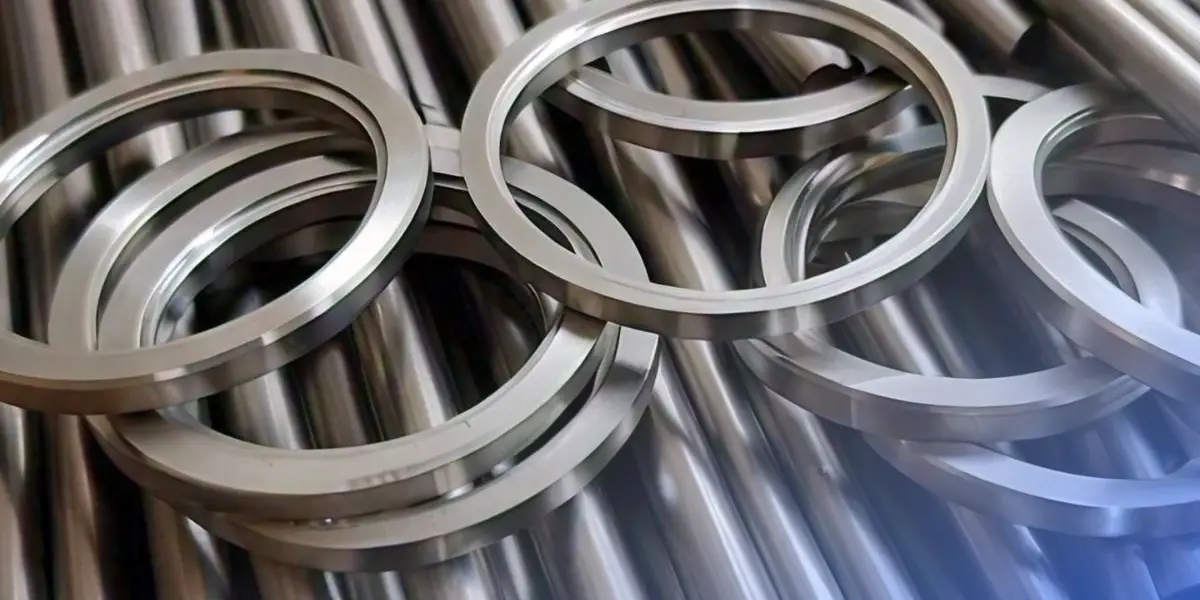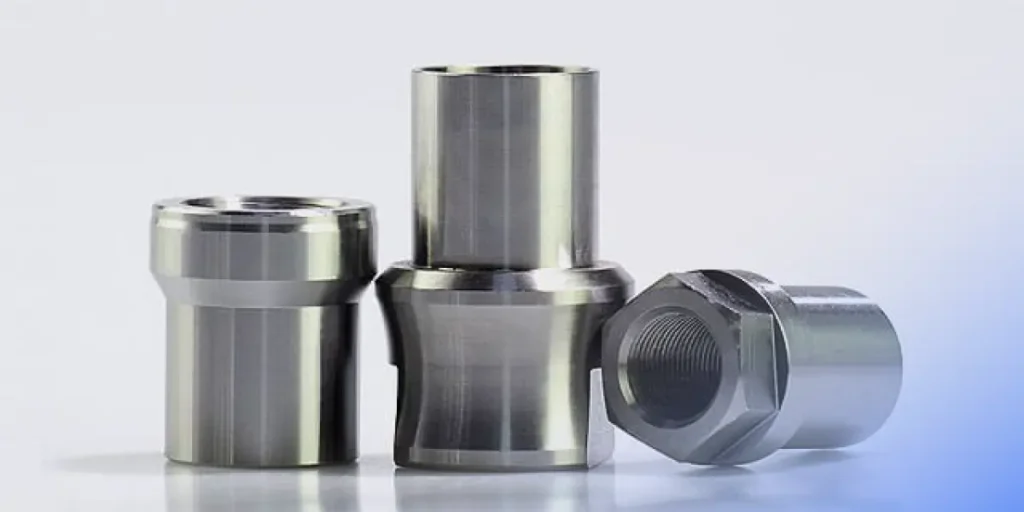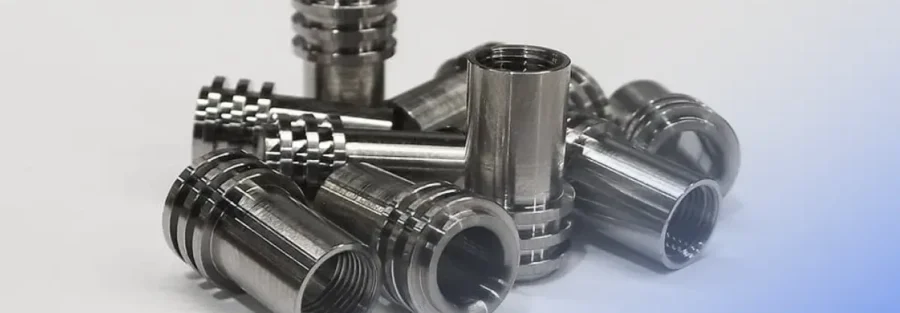When we consider precision, purity, and performance converging into one titanium alloy—Ti-6Al-4v ELI, or simply Grade 23 titanium—this is it. Ti–6Al–4v ELI has been heralded for its superior biocompatibility and strength-to-weight ratio; therefore, this alloy is an excellent candidate for precision manufacturing for aerospace, medical, chemical, and marine industries. It is considered one of the best titanium alloys for critical functioning applications.
What actually makes grade 23 titanium stand out from other titanium grades, like Titanium Grade 5? Why is Ti–6Al–4v ELI titanium so widely used in applications that require precision manufacturing? Last— where could you source a titanium tube or certified titanium fittings for your next project in India?
This guide will detail the properties, applications, specifications, and sourcing options for Ti-6Al-4v ELI (Grade 23) to help engineers, buyers, and manufacturers when buying this grade of titanium.
What is Ti-6Al-4v ELI (Titanium Grade 23)?
Ti-6Al-4v ELI stands for Titanium – 6% Aluminum – 4% Vanadium Extra Low Interstitial, designating the modified chemical structure that has less oxygen, nitrogen, and other elements, defined as interstitials.
Ti–6Al–4b ELI is essentially a commercial brand equivalent of Grade 5 titanium (Ti-6Al-4v) that is more durable and has better fracture toughness characteristics than Grade 5 titanium. This is applicable for situations where both are important, such as in implants and precisely manufactured airplane parts.

- UNS: S46400
- AISI: 630 (Grade 23)
- ASTM: F136 / F3001 (Medical and Additive Manufacturing)
Chemical Composition of Ti-6Al-4v ELI
Element | Composition (%) |
Titanium (Ti) | Balance |
Aluminium (Al) | 5.5 – 6.5 |
Vanadium (V) | 3.5 – 4.5 |
Oxygen (O) | ≤ 0.13 |
Iron (Fe) | ≤ 0.25 |
Carbon (C) | ≤ 0.08 |
Nitrogen (N) | ≤ 0.05 |
Hydrogen (H) | ≤ 0.012 |
Mechanical Properties of Titanium Grade 23
Property | Value |
Density | 4.43 g/cm³ |
Tensile Strength | ~825–950 MPa |
Yield Strength | ~795 MPa |
Elongation at Break | ~14% |
Modulus of Elasticity | ~114 GPa |
Hardness (Rockwell C) | 34–38 |
Melting Point | 1604–1660°C |
Applications of Ti-6Al-4v ELI in Manufacturing
Why are Ti–6Al–4v ELI uses preferred?
- Biocompatible: Ti–6Al–4V any type of ELI is biocompatible, meaning that it produces very mild reactions to the human body when implanted appropriately.
- Precise machining: The ELI titanium is a great material for very complicated and delicate seventies.
- Fatigue resistance: The Ti–6Al–4v ELI surface is faring well once the specimen is stressed and in load cycles.
Titanium Grade 23 vs Grade 5 (Ti-6Al-4v)
Feature | Grade 23 (Ti-6Al-4v ELI) | Grade 5 (Ti-6Al-4v) |
Oxygen Content | ~0.13% | ~0.20% |
Ductility | Higher | Moderate |
Strength | Slightly Lower | Higher |
Biocompatibility | Superior | High |
Common Use | Implants, surgical tools | Aircraft structures, marine |
Weldability | Excellent | Good |
Depending on the ultimate medical use and fatigue sensitive use, applications of Ti–6Al–4v ELI among medical uses would include Grade 23 ELI which is typically very good with corrosion resistance. Accordingly, Grade 5 titanium for any structural or load carrying will not see an increase in ultimate stress in comparison to Grade 5.
Common product forms of Grade 23 Titanium
Product Form | Standard | Applications |
Titanium Round Bar | ASTM B348 | CNC machine parts, medical tools, and aircraft |
Titanium Tubes | ASTM B338 | Surgical tubing, heat exchangers |
Titanium Fittings | ASME B16.9 / B16.11 | For connections in corrosive fluids |
Titanium Plates/Sheet | ASTM B265 | Implants, casings, panels |
Heat Treatability and Machinability of Ti-6Al-4v ELI.
Titanium Grade 23 allows heat treatment for enhancing mechanical properties such as corrosion resistance and improved toughness.
Heat Treating Process Table
Process | Purpose |
Annealing | To relieve internal stress and improve ductility. |
Solution Treating | To increase strength before aging. |
Aging | To provide a strengthening mechanism through precipitation hardening. |
Machining Recommendations for Ti-6Al-4v ELI:
- Use carbide-coated tooling.
- Machining should be at slow speeds with a faster feed rate.
- To manage heat during machining, use enough coolant.
- For tool setups, make sure the stiffness will allow for no vibrations in the tool system.
Titanium Grade 23 is a beta alloy and therefore slightly harder to machine than steel; however, it trades for performance, and corrosion resistance exceeds steel.
Titanium Alloys Comparison Chart
Alloy | Strength (MPa) | Oxygen (%) | Use Case |
Grade 2 | ~345 | 0.18% | Heat exchangers, architecture |
Grade 5 (Ti-6Al-4v) | 900–1100 | 0.20% | Aerospace, marine |
Grade 23 (ELI) | 825–950 | 0.13% | Implants, surgical, 3D printing |
15- 5 PH (SS) | 1000–1100 | — | General high-strength steel parts |
Machinability and Fabrication of Ti-6Al-4v ELI
Titanium Grade 23 is a beta alloy with high strength and excellent corrosion resistance, but with machining and fabrication, the approach must be deliberate and properly planned.

Key Machining Properties to Remember:
- Low thermal conductivity: This means that the cutting area at the tool tip gets very hot.
- Work hardening: It is important to use sharp tools and light pressure on the tool.
- Tool material: Carbide tools, with or without some sort of coolant or lubricating fluid, are the norm.
- Speeds and feeds: This method utilizes a low speed with some feed, which minimizes tool wear.
Welding and Forming:
- Can be welded and are often shielded with an inert gas (argon).
- Cold formable thin sections due to ductility.
- Clean forged and welded to avoid contamination.
Industries such as aerospace and orthopaedics often use precision fabricators and titanium fittings exporters from India due to their experience into cleanroom manufacturing and advanced CNC machining methods to guarantee good corrosion resistance and high strength for Ti–6Al–4V ELI.
Need Titanium Fittings or Tubes?
If you’re sourcing Titanium as could whether you’re a medical device manufacturer or aerospace parts supplier, you require a supplier who is trustworthy and understands what quality control means for titanium fittings and tubes!
Consider certified titanium pipe manufacturers in India to provide:
- Custom sizes and diameters
- Ti-6Al-4V ELI and other Titanium Alloys
- Packaging/export packaging and certifications
Conclusion
When it comes to Ti-6Al-4v ELI (also referred to as Titanium Grade 23), it is more than a performance material for demanding environments– it cannot fail. The combination of a unique tool of purity, strength, and biocompatibility means industries will continuously push to make performance materials that cannot fail.
From intricate surgical instruments to extremely lightweight components for airplanes, Grade 23 delivers performance at the intersection of precision and durability. If your project involves an application where precision, fatigue resistance, and cleanliness (biocompatibility) are of utmost concern, this alloy will be at the top of your short list of materials for your project.
To be prudent, it is always best to source your titanium from a reputable titanium tube supply company or a trusted titanium pipe manufacturer that follows international supply criteria for titanium, so there will be no issues down the road with your project.
FAQs
The only difference is the purity. ELI (Extra Low Interstitial) grade titanium alloy has much lower oxygen and nitrogen than the standard titanium alloy. This results in increased ductility, fracture toughness, and fatigue performance and is often used in aerospace industries, but has also affected the overall use, and performance in voting, medical devices, etc.
Yes, Grade 23 (an extra low interstitial titanium alloy) is the gold standard for medical implants, presenting the best combination of strength, corrosion resistance, and biocompatibility.
Seek out titanium tube suppliers certified for ISO/PED standards for aerospace industries and medical grade titanium tube manufacturing who are ISO/PED certified compliant with ASTM and ASME.
Yes, titanium grade 23 has excellent weldability with inert gas shielding (like argon) and controlled temperatures to be applied in all the aerospace industry use.
Titanium grade 23 is highly corrosion resistant alloy employing resistance to strong saline environments, body fluids, or many industrial chemicals making it effective for extreme situations.

